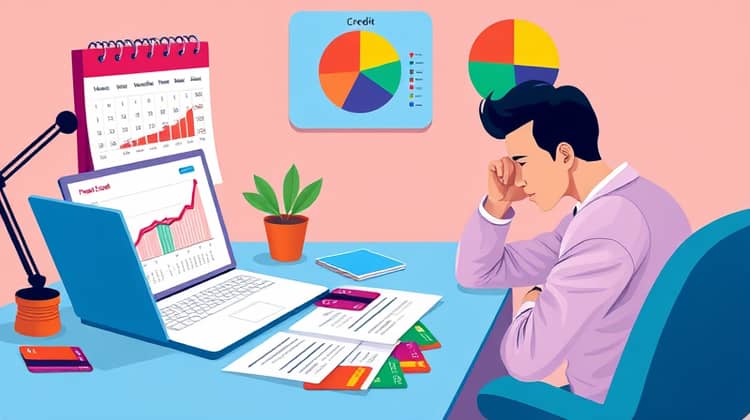Building a solid credit history is crucial for anyone looking to achieve financial independence. For many, the initial step towards that goal is obtaining a credit card. While it may seem like a simple piece of plastic, a credit card carries significant weight when it comes to your creditworthiness and overall financial health. This article will explore how credit cards can be a powerful tool in building your credit history, what credit history entails, and how to properly manage your credit for long-term benefits.
Understanding the nuances of credit history is vital to making informed financial decisions. However, many individuals overlook its complexity, often leading to challenges in securing loans or favorable interest rates. This article aims to decode credit history and its importance, guiding you to take proactive steps in using credit cards wisely to enhance your credit profile.
From understanding what factors contribute to your credit history, to recognizing the long-term impact of financial decisions, the more knowledge you have, the better equipped you’ll be to navigate the credit landscape. By the end of this piece, you should feel empowered to take charge of your financial future.
Understanding Credit History

Credit history is a record of a borrower's responsible repayment of debts. It includes information about credit accounts, the amount owed, payment history, and whether payments are made on time. Lenders use credit history to assess the risk of lending to a potential borrower. Essentially, it serves as a report card for your financial behavior.
A good credit history demonstrates that you have managed your debts effectively in the past. This can open doors to various financial opportunities, such as qualifying for loans at better interest rates and mortgage approvals. On the other hand, a poor credit history can lead to higher loan costs or even denial of credit altogether, making it essential to maintain a positive credit profile.
Understanding your credit history also involves knowing how different factors influence your credit score, which is a number that summarizes your credit risk. Factors such as payment history, credit utilization, length of credit history, new credit accounts, and types of credit used all play a significant role in determining your score.
Why Credit History is Important

A robust credit history is essential as it directly influences your financial options. Having a good credit score can mean the difference between securing a loan with favorable terms or being turned down outright.
- It affects your ability to get loans for major purchases like homes or cars.
- A strong credit history can result in lower interest rates.
- Credit history is often checked by landlords, insurers, and potential employers.
The Role of Credit Cards in Building Credit

Credit cards can play a significant role in shaping your credit history. When managed responsibly, they can help establish you as a trustworthy borrower.
- Using credit cards can help build your credit history by showing you can manage debt responsibly.
- Regular on-time payments improve your payment history, a key factor in calculating credit scores.
- Credit cards can assist in building your credit utilization ratio if you keep your balances low.
Steps to Building Credit History with Credit Cards

Following a strategic approach can help you control and build your credit history effectively with credit cards.
- Select a credit card that aligns with your spending habits and offers good terms.
- Set up automated bill payments to ensure that your credit card bills are paid on time.
- Aim to utilize no more than 30% of your available credit limit to maintain a healthy credit utilization ratio.
Monitoring and Maintaining Your Credit History

Monitoring your credit history is a crucial part of maintaining a good credit score. Regularly checking your credit reports can help you catch any errors or fraudulent activity that could impact your creditworthiness. You are entitled to a free credit report from each of the major credit reporting agencies once a year, which is a valuable opportunity to assess your financial health.
Additionally, staying on top of your credit card statements allows you to ensure that all payments are accounted for and that you aren’t being charged for unexpected fees. This diligence can prevent minor mistakes from becoming major problems in your credit history.
Being proactive in financial management is key. By utilizing budgeting strategies and setting limits on credit card spending, you can ensure you’re using credit responsibly while still building your credit history effectively.
Lastly, consider signing up for a credit monitoring service. Many of these services alert you to changes in your credit report, such as new accounts or credit inquiries, which can help you stay informed and in control of your credit history.
Common Mistakes to Avoid

Awareness of common pitfalls can enhance your credit-building journey and help maintain a positive credit history.
- Avoid missing payments or making late payments, as this can severely impact your credit score.
- Don't apply for multiple credit cards at once; each application generates a hard inquiry, which can lower your score.
- Be cautious not to max out your credit limit, as high credit utilization can threaten your creditworthiness.
Conclusion

Building and maintaining a solid credit history with credit cards involves strategic planning and awareness of credit management fundamentals. By understanding what contributes to your credit score and employing effective strategies, you can develop a positive credit history that opens doors to various financial opportunities.
Additionally, conscious spending and timely payments will not only build your credit score but also provide valuable lessons in financial responsibility. It's critical to view your credit card as a tool rather than just a means of payment.
Ultimately, the journey towards a solid credit history is ongoing, requiring regular monitoring and adjustment of your financial habits. Take the time to educate yourself and make informed choices, and you will find yourself on the path to achieving your financial goals.














